This blog is adapted from a speech given at the ‘Women in Law Enforcement’ civil society side event organised by Law Enforcement Action Partnership (LEAP), at the 66th session of the UN Commission on Narcotic Drugs (CND).
Julia is a new member of LEAP a group of Police, undercover operatives, intelligence service, military and a range of figures from the criminal justice system who are joining together with communities to bring about drug law reform
My name is Julia Ryland and I am a former Metropolitan police officer. I worked as a Neighbourhood Police Officer (NPO) in Camden Town – a well known tourist location in inner city London – sometimes referred to by tourists as the Amsterdam of London, and by police, as a drugs hotspot.
It’s important to acknowledge that my experiences are UK focussed, and drug laws and police procedure vary massively from country to country. But, from talking to officers internationally, I know that many share the thoughts and experiences I am going to talk about today. We, as police officers have been fighting on the front line of the war on drugs for decades, and it’s about time we started being honest about what that’s like, from a police perspective.
I had to leave the police in order to speak out. Serving police officers cannot actively engage in politics, and unfortunately this remains a political issue. I joined the police to protect the public and to make a positive difference – but I left the police because current UK drug policy was preventing me from doing so. Prohibitionist international drug policies are preventing policing from embedding evidence based best practice into routine police procedure.
I had to leave the police in order to speak out.
For the rest of my time, I’m going to talk about my experiences policing Camden town, and the personal conflict I experienced between policing priorities and evidence based harm reduction.
As a NPO in Camden Town, my focus was proactive preventative activity. I had to get to know the community, understand the policing-relevant issues and build positive relationships between the community and the police. The communities main concerns were the visible drug dealing, the drug use and the drug-related anti social behaviour.
The main approach I was encouraged to use by the police was stop and search and if I found drugs, I would usually make an arrest and apply a criminal sanction. The only exception to this was for cannabis where I was allowed to use an Out of Court Disposal (basically a warning) for a first-time offence. However, after the first warning, many people caught with cannabis a second time were arrested and given a criminal record.
Yet, through my personal research in this area I knew that stop and search and arrest and criminalisation of possession can be incredibly damaging. The impact that a criminal conviction can have on someone’s life chances can be vastly more damaging than the harms caused by drug use. I also knew that police interventions very rarely dent the overall availability and supply of drugs.
The impact that a criminal conviction can have on someone’s life chances can be vastly more damaging than the harms caused by drug use.
I also knew that most people who use drugs ‘problematically’ are people who have experienced and are coping with trauma. Even though I knew these things, I had incentives to stop and search and make arrests, which I’ll come onto…
The homeless community and street drug dealers (usually young cannabis dealers) occupied almost all of my time (and that of my colleagues). The drug-dealing was surprisingly visible, with very little attempt to be covert: a rotating group of the same people, standing outside the same shop, pretty much 24hrs a day. As an NPO I had to be seen to be addressing the dealers presence by the community. I chose to engage with them in a friendly, approachable non-combative way. And I did the same with the homeless community. I found over time that young dealers started to give me a nod and walk away from the area upon sight and without request. Homeless substance users started to dispose of their drug paraphernalia more safely, having listened and understood my justifications. Any initial hostility stemmed from fear and uncertainty about how I would discharge my powers. Once they trusted that my decision making would be fair, reasonable, and appropriate to the circumstances, fear and hostility reduced, and cooperation and compliance improved. It was a two-way relationship – making both my job and their lives easier – and this is why neighbourhood policing works.
But crucially, I had incentives to stop and search and to make arrests for drug possession: as an NPO, the most straightforward way in which my performance was assessed was the extent to which I had conducted legal stop-searches and the number of arrests I had made.
As long as police procedure encourages stop and search and arrest by measuring officer performance through these actions, police officers are not going to stop.
Arresting someone for possession of drugs is a straightforward, routine process, that usually results in a charge and a positive impact on my personal performance measures. What this does, ultimately, is incentivise officers to reach for that low hanging fruit – drug possession arrests – for as long as police procedure encourages stop and search and arrest by measuring officer performance by these actions, police officers are not going to stop taking these actions.
The interactions I had as an NPO were personal, but when I enforced drug laws against the public, it undermined not only my relationship with them but also their wider perception of authority and trust in the police. When making a decision about whether to stop-search someone, I had to balance the expectations of the job and the positive impact it could have on my own performance measures against my knowledge that it could cause harm, and undermine the wider objectives of neighbourhood policing which were supposed to be my priority. I felt uncomfortable that the ‘discretion’ I was nominally allowed, could not be discharged in a way that aligned with my knowledge of evidence-based harm reduction.
To be clear, if I found a young vulnerable woman who was homeless and in possession of class A drugs, the only option I had was arrest. This usually involved handcuffing them, putting them into the back of police van, and strip searching them on arrival in custody – an utterly degrading experience, and then I’d see them back on the street a few days later, to me that just didn’t make any sense.
A time consuming and expensive investigation, case file and court hearing would follow. None of these provided any help or support to address the underlying causes of their problems – but it did use vast amounts of police time and resources that would be better spent elsewhere.
Prohibition prevents the prioritisation of evidence-based, drug-related harm reduction and criminalisation causes harm to already disadvantaged and vulnerable communities and stigmatises drug use in a way that does not prioritise public health. As police officers it is our job to protect the public – but drug law not only prevents us from doing so, it encourages the use of tactics that can contribute to the harm that people experience. We urgently need radical policy reform so that police officers can protect people from harm, instead of contributing to it.
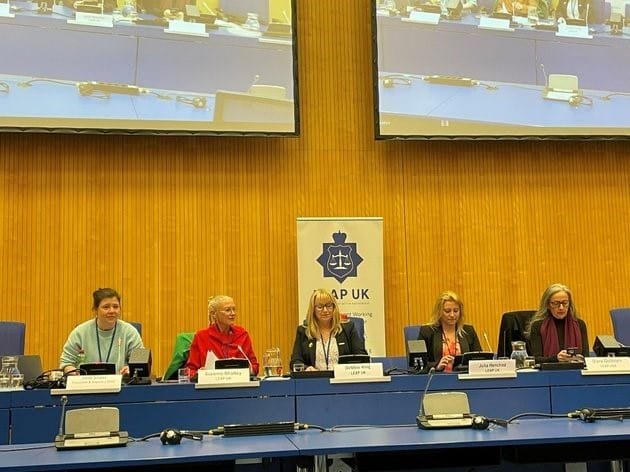
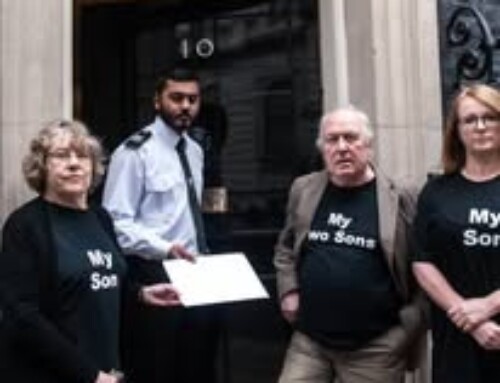
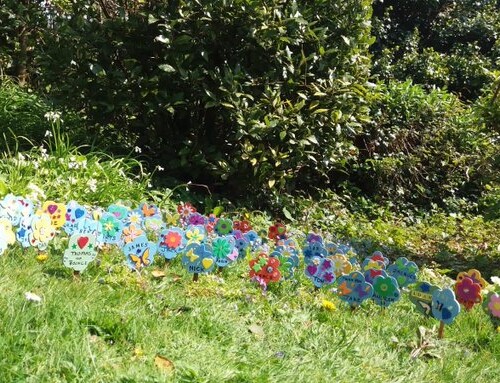
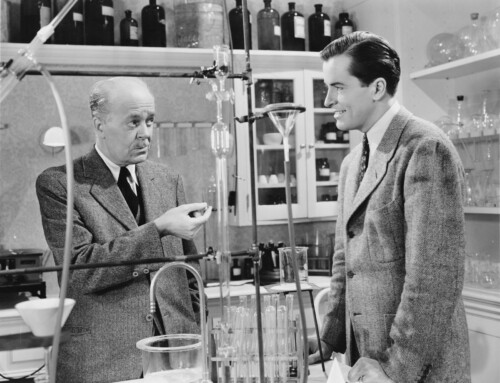
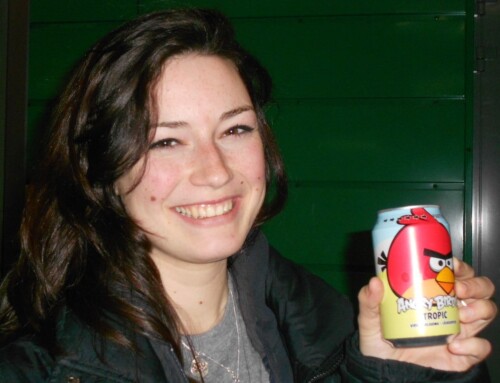
Well spoken
This is such a coherent argument for finding humane ways of dealing with addiction whilst increasing the safety of other members of society and it obviously hinges at looking at the law and policing in a way which some may think is radical. It isn’t radical, it’s just a sensible change